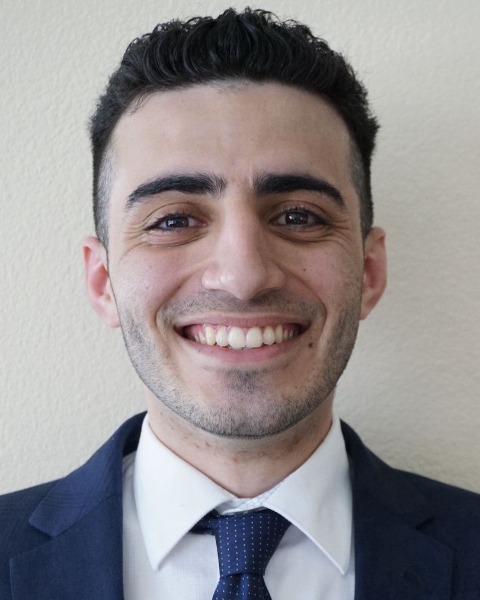Stereotactic and Functional
Neuropsychological Effects of GPi Deep Brain Stimulation in Medication Resistant Dystonia
Neuropsychological Effects of Gpi Deep Brain Stimulation in Medication Resistant Dystonia

Anthony E. Bishay, BS
Medical Student
Vanderbilt University School of Medicine
Vanderbilt Medical School
Nashville, TN, US
Presenting Author(s)
Introduction: Dystonia is a neurological movement disorder characterized by involuntary muscle contractions. Deep brain stimulation (DBS) of the globus pallidus interna (GPi) is an effective treatment for dystonia. In Parkinson’s disease, DBS has been suggested to have neuropsychological side effects in some patients. However, the effects of GPi DBS on neuropsychological functions in dystonia patients are not well understood. The current study aims to evaluate the neuropsychological outcomes following bilateral GPi DBS in patients with treatment-resistant dystonia.
Methods: A retrospective cohort study was conducted on medication-resistant dystonia patients who underwent GPi DBS with pre-operative and post-operative neuropsychological testing. Assessments included the Beck Depression Inventory-II (BDI-II), Beck Anxiety Inventory (BAI), and tests of attention, working memory, executive function, language, memory, and visuospatial function. Norm-referenced cognitive test scores were converted to z-scores and averaged within cognitive domains. Paired-sample t-tests were used to evaluate changes from pre- to post-operative testing.
Results: A total of 21 patients were included. The cohort had a mean age of 53.5+12.2 years, with an average disease duration of 8.6+10.3 years. Post-operative neuropsychological testing was completed an average of 19.5+14.9 months following surgery. There were no significant changes in BDI-II (preoperative: 12.89+6.1, postoperative: 14.26 ± 9.9, p=.610) or BAI scores (preoperative: 7.33+6.3, postoperative: 6.33+7.7, p=.681). Similarly, there were no changes in the domains of attention (preoperative: -0.34+0.90, postoperative: -0.50+0.80, p=.392), executive function (preoperative: -0.20+0.97, postoperative: -0.49+1.11, p=.195), language (preoperative:0.09+0.74, postoperative: -0.09+0.56, p=.147), memory (preoperative: 0.17+0.84, postoperative: -0.03+1.04, p=.216), visuospatial function (preoperative: 0.28+0.73, postoperative: 0.33+0.86, p=.850), and global cognition (preoperative: -0.01+0.63, postoperative: -0.17+0.67, p=.150) following DBS.
Conclusion : The current study suggests that GPi DBS does not detrimentally affect cognitive functions at the group-level in patients with treatment-resistant dystonia. These findings provide important information for clinicians and patients weighing the benefits and risks of surgical intervention for dystonia management.
Methods: A retrospective cohort study was conducted on medication-resistant dystonia patients who underwent GPi DBS with pre-operative and post-operative neuropsychological testing. Assessments included the Beck Depression Inventory-II (BDI-II), Beck Anxiety Inventory (BAI), and tests of attention, working memory, executive function, language, memory, and visuospatial function. Norm-referenced cognitive test scores were converted to z-scores and averaged within cognitive domains. Paired-sample t-tests were used to evaluate changes from pre- to post-operative testing.
Results: A total of 21 patients were included. The cohort had a mean age of 53.5+12.2 years, with an average disease duration of 8.6+10.3 years. Post-operative neuropsychological testing was completed an average of 19.5+14.9 months following surgery. There were no significant changes in BDI-II (preoperative: 12.89+6.1, postoperative: 14.26 ± 9.9, p=.610) or BAI scores (preoperative: 7.33+6.3, postoperative: 6.33+7.7, p=.681). Similarly, there were no changes in the domains of attention (preoperative: -0.34+0.90, postoperative: -0.50+0.80, p=.392), executive function (preoperative: -0.20+0.97, postoperative: -0.49+1.11, p=.195), language (preoperative:0.09+0.74, postoperative: -0.09+0.56, p=.147), memory (preoperative: 0.17+0.84, postoperative: -0.03+1.04, p=.216), visuospatial function (preoperative: 0.28+0.73, postoperative: 0.33+0.86, p=.850), and global cognition (preoperative: -0.01+0.63, postoperative: -0.17+0.67, p=.150) following DBS.
Conclusion : The current study suggests that GPi DBS does not detrimentally affect cognitive functions at the group-level in patients with treatment-resistant dystonia. These findings provide important information for clinicians and patients weighing the benefits and risks of surgical intervention for dystonia management.

.jpg)